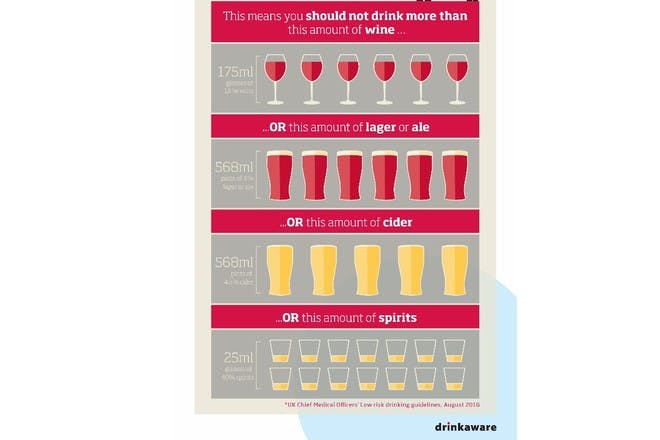What HE needs to know to get pregnant

This page contains affiliate links, which means we may earn a small amount of money if a reader clicks through and makes a purchase. All our articles and reviews are written independently by the Netmums editorial team.
It takes two to get pregnant so what can your partner be doing – other than the obvious – when you're both ready to try for a baby? Here's what HE needs to know about getting pregnant ...
You've decided to try for a baby – congratulations! And while you've probably started making lists and mental notes of everything you need to do to get pregnant, why not get your other half involved too?
After all, there's plenty he can be doing to help things go as smoothly as possible, like ....
Having regular sex
It may seem obvious, but if you want to become a dad you need to have regular sex, ideally two or three times a week. Having sex around the time your partner ovulates (when an egg is released from the ovary) will increase your chances of conceiving.
FREE NEWBORN NAPPIES
Want to spice things up even further?
Take a look at The Top 20 Sex Positions Netmums users recommend for getting pregnant.
Eating healthily
While there's no concrete evidence that specific foods boost fertility, eating a healthy, balanced diet will help maintain a healthy weight. This is essential for keeping your sperm in good condition.
Aim to eat at least five portions of fruit and vegetables a day for a mix of vitamins, carbohydrates such as wholemeal bread and pasta, and lean meat, fish, and pulses for protein.

Studies have shown that certain nutrients are linked to good sperm production so you may want to include some of these in your diet. They include:
- zinc (found in meat, shellfish, dairy foods, bread and cereal products)
- selenium (found in Brazil nuts, fish, meat and eggs)
- vitamin D (found in sunlight so the government advice is to take a daily 10 microgram (mcg) supplement)
- folic acid or vitamin B9 (found in green vegetables, pulses, potatoes and oranges).
Stopping smoking
The NHS says that 'men who smoke risk damaging their sperm'. So if you're looking to start a family, now is the perfect time to quit smoking. Not only could it help improve the quality of your sperm, it will also help improve your overall health, too.
Research also shows that smoking during pregnancy and after your baby is born greatly increases the chance of SIDS (sudden infant death syndrome).
And, according to The Lullaby Trust, the chance of SIDS increases whether it is a baby’s mother or father who is the smoker. Keeping your baby smoke-free before and after birth is the best way to reduce this risk.
The sooner you quit, the better!
Cutting down on booze
Current NHS guidelines state that men should drink no more than 14 units of alcohol a week, which should be spread evenly over three days or more. That's about seven pints of beer, six glasses of wine, or 14 single measures of spirits per week.

Studies have shown that alcohol reduces testosterone levels, which can lead to loss of libido and reduce sperm quantity and quality. Alcohol can also hamper sperm mobility and development.
It can also make it difficult for some men to get, and keep, an erection – also known as ‘brewer’s droop'.
The good news is, if you reduce what you drink, its effect on your sex life can be reversed.
There’s no reason for dads-to-be to have to cut out caffeine completely.
Staying cool down there
If you're trying to conceive, it's important to keep your 'bits' cool to avoid slowing down sperm production.
According to the NHS, a man's testicles should be one or two degrees cooler than the rest of his body. The ideal temperature for sperm production is around 34.5ºC, which is just below body temperature.
But there's no need to grab a pack of frozen peas!
Instead, avoiding tight underwear, hot showers and hot baths and using laptops on your lap can be enough to keep them cool.
Not leaving it too late
Although men are able to father children into their 50s and beyond, men’s fertility gradually declines from around the age of 40 – worth knowing.
Managing stress levels
Severe stress can impact your fertility by reducing sperm count. But any levels of stress can affect your libido and relationship so it's important to find ways to relax. Exercise, deep breathing and meditation are great stress-relievers.
'Even a brisk 20 minute walk, three times a week will do you the world of good,' says fertility expert, Zita West. 'Just don't spend too much time unwinding in the sauna or jacuzzi – this can overheat your sperm and cause damage,' she says.
Read Zita West's top tips for getting pregnant here.
Being patient
Making lifestyle changes can take around three months to have any effect so the sooner you start, the better.
Current statistics show that 84% of couples conceive naturally within one year if they have regular unprotected sex. Advice is to give it 12 months before going to see your GP for fertility advice, unless either of you has any known fertility issues, in which case seek help sooner.
And remember, one in seven couples – approximately 3.5 million people in the UK - may have difficulty conceiving, so if you do need to seek help, you're not alone.
As well as your GP being able to advise on appropriate next steps or treatment, Netmums' Coffeehouse forum has a dedicated Trying to Conceive (TTC) board, where there's always someone ready to chat.
In the meantime, you'll find everything you need to know about trying to conceive in our ultimate guide to getting pregnant.
Good luck!




